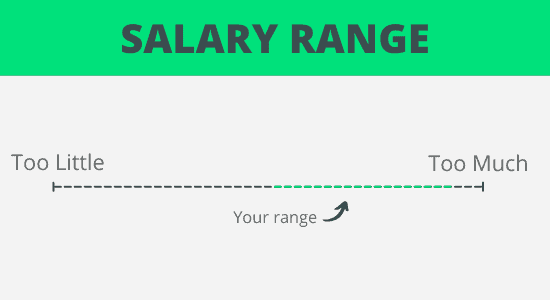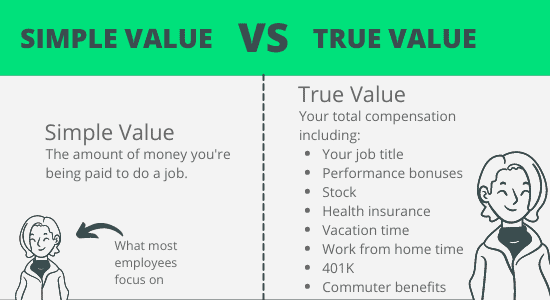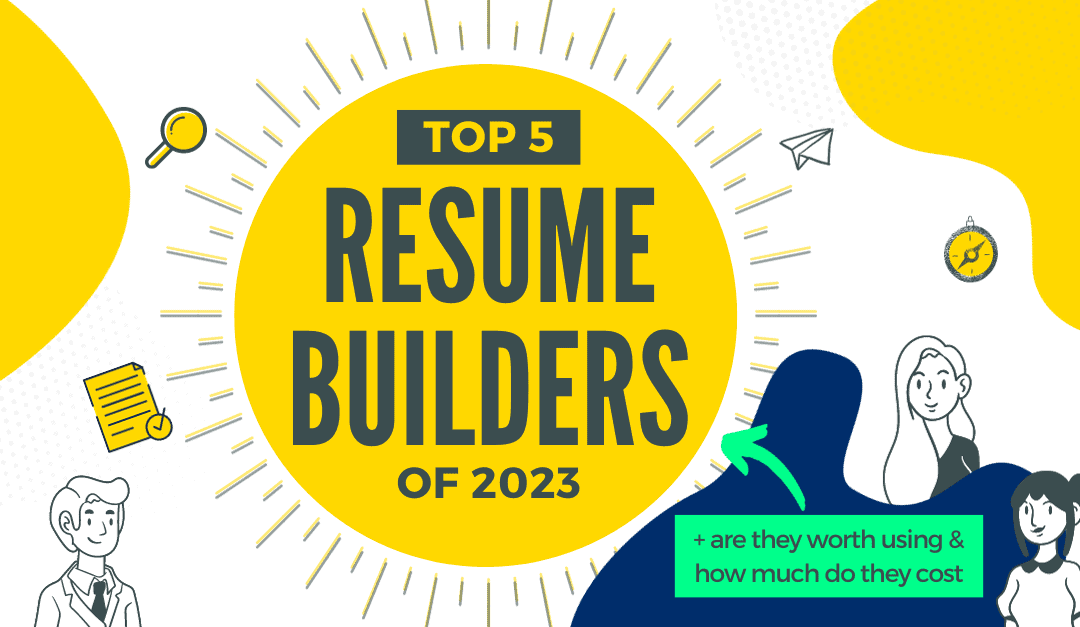
3 Stress-Free Techniques to Negotiate a Higher Job Offer (including word-for-word scripts)
Ever wish you could add guacamole to that burrito? Wish you could get that HBO subscription? As human beings, we’re victim to a cognitive bias called the Denomination effect, in which we tend to pay more attention to small amounts of money than large amounts of money.
For example, when planning a vacation, we’ll debate whether we should book the cheaper hotel or the more expensive hotel for hours (sometimes days!).
We’ll cross-reference with other hotels, search for deals, and even sign up for discount email lists, all in the hopes of saving $50.
But, when it comes to possibly gaining $4,000 or even $20,000 in a salary negotiation, we’ll shy away and just take whatever is offered to us.
Over the last 5 years I’ve negotiated my salary 4 times and, through trial and error, discovered a few techniques that eventually earned me a $50,000+ increase in salary.
In this post I’ll show you how you can negotiate a higher salary without going through a stressful experience and without “selling yourself.”
Let’s jump right in!

1. Ask them for the salary range of the position
Surprisingly, most job candidates never do the simple step of asking what the salary range is for a given position.
This is understandable.
After all, job interviews can be incredibly stressful so it’s easy to forget these simple questions.
The best time to ask about salary expectations is during the phone screen with the recruiter.
Keep in mind that a recruiter is evaluated based on how many quality candidates they bring in and how many of those candidates get offers. So, it’s in a recruiter’s best interest to make sure you’re qualified (not only based on your experience, but also based on your salary needs).
In my experience, about 70% of the time the recruiter will gladly share the salary range they have to work with for a position. For the times that they don’t share this information, they'll usually ask you for your salary range, which you should be ready to provide them.
Let’s go over how to choose the best salary range for a negotiation.
2. Give them a salary range instead of an exact number
A common mistake that job candidates make when negotiating a higher salary is that they don’t give the hiring manager any wiggle room.
Imagine that they offer you $70,000 and you demand $20,000 more. You might disqualify yourself as a candidate simply because they think they can’t afford you.
The last thing you want is for your manager to think, “well we really like her, but maybe she’ll be disappointed with the salary we can give her and quit after just a year. Maybe we should choose a different candidate instead?”
A better approach to negotiate a higher salary is to provide a range that you’re comfortable with.
There are two ways you can phrase this:
“My range would generally be between $80,000-$95,000, depending on benefits, bonuses, stock options, etc.”
Or
“I’m looking for somewhere in the low to mid six figures.”
The way you should pick your range is based on the salary you’re targeting. Namely, your range should place your target salary in the middle.
SALARY ANCHORING
Human beings have another cognitive bias called “anchoring” in which we use the first piece of information given to us to adjust the value we set to something.
When given a range, we tend to never want to be on the extremes of that range (no one wants to be “too short” or “too tall").
For example, if someone says they’re looking for a salary of $50,000–$60,000, they’ll likely be offered $55,000.
But, if they say they’re looking for $50,000–$70,000, they’ll likely be offered $60,000.
In order to choose your salary range, first think about the exact salary you'd like. Then, create a range of +/- $10,000 around that.
By giving the hiring manager a range, you’ll not only give them more wiggle room, but you can also safely ask for a higher salary without eliminating yourself from the hiring pool.

3. Discuss the entire hiring package so you have a backup plan
Let’s be honest, in today’s market where there are over 20 million unemployed workers in the U.S. alone, the chances that you’re irreplaceable are pretty slim. That’s why when you’re negotiating your job offer, it’s really important to create a backup plan in your negotiation.
A “backup” is like an emergency exit that you can use if the negotiation isn’t going your direction. If you ask for a higher salary and they say no, you can use your “backup” to move the negotiation to a positive place and still accept the job offer.
One of the easiest ways to create a backup is to start off by discussing more than just the salary.
In most cases, it costs companies a lot more to hire you than just your salary, including:
- Your job title
- Performance bonuses
- Stock or stock options
- Health insurance
- Vacation time
- Work from home time
- 401K
- Commuter/wellness benefits
NEGOTIATING JOB TITLE
If your salary negotiation is causing you and the company to have a roadblock, the most common way you can move the negotiation forward is by negotiating your job title.
This is a good backup because it doesn’t cost the company any money to bump up your job title.
Although at first you might be thinking, “how does a better job title help me pay the bills?”
Well, it doesn’t…yet.
Increasing your job title doesn’t have a monetary value in the moment, but it does set you up for a big salary raise in the future.
For example, if you are able to get a senior title now, when you decide to leave the company, you can apply to more senior level positions, which will naturally carry senior-level pay along with them.
Sample Job Offer Negotiation Script
Here's an example of what some of my salary negotiations have looked like. Feel free to use these to frame your own job offer negotiation:
Recruiter: And what is your current or desired salary?
(Note: never tell them your current salary as it will instantly anchor you)
Bogdan: I think that really depends on what the role involves as well as some of the other factors such as health benefits, 401k, commuter benefits, etc. Do you have a salary range that you're working with for this role?
Recruiter: We haven't landed on a final salary range yet. Do you have a range you're targeting?
Bogdan: I'd like to be in the $80,000-100,000 range, which from what I understand is fair market value for my role right now.
Recruiter: Great, I think that's within our range.
OR...
Recruiter: O, okay that may be higher than what we were estimating so I'll have to see what we can do.
Bogdan: Yes, if you could check that would. be great. Like I said, I'd like to see the full comp package and we can go from there.
In the scenario above, you saw how I tried to get their range first, but when the recruiter refused to share that (as they sometimes will) I had a range that I could share. Make sure you're ready with this information even at your very first interview as it's a common place where they'll ask you for your salary expectations.
Here's what will likely happen after several more interviews when you're at the offer stage...
Recruiter: So I'm excited to say that we'd like to make you an offer!
Bogdan: O, that's great news!
Recruiter: Yes, the team really loved you and the offer we prepared I think you'll find pretty generous.
(^Don't fall for sweet talking! Remember you're talking to a professional so be wary of them pulling on your emotional heartstrings)
Recruiter: We're prepared to offer you $85,000 with blah, blah, blah and in addition we also have blah, blah, blah.)
Bogdan: O thank you for the offer. I think that the (blah, blah, blah) you mentioned sounds great and I think I would really love working with the team. The only thing is that I was hoping to be closer to the upper range of the $80-100k range I mentioned.
Recruiter: Okay let me see what I can do and I'll get back to you.
Regardless of how good the offer is you should always ask for just a little more. At this stage they like and they'll negotiate with you before they go to the next best candidate, so give always take a shot at negotiating a higher job offer at this stage
Next one of two scenarios will happen...
Scenario #1: The recruiter comes back and says they managed to raise their offer by $5,000. Great, take it! You just made $5,000 in 20 seconds, take your friends and family to a nice dinner
Scenario #2: The recruiter comes back and says that they unfortunately can't go any higher. Here's what to say next...
Bogdan: O, that's too bad to hear. Well in that case can we adjust my title to [insert desired title]? That way I can at least have something to show in terms of career progression.
You'll either get the title bump or you won't, but no matter what you at least tried your best to get as much out of the offer as you could.
Remember that a job offer negotiation isn't about playing hard to get, flaunting your value, or any of that ego-driven BS. It's just a conversation with someone who does this for a living every single day, so there won't be any hard feelings.
Conclusion and Takeaways
Those are 3 easy ways that you can negotiate a higher job offer and do so without stressing out.
It’s important to remember that negotiating a job offer is a very standard practice.
In fact, according to many studies, recruiters often expect you to negotiate a little, which is why they may give you a lower offer to begin with.
In 4 out of my last 5 jobs I’ve been able to negotiate successfully. And, the one time that my negotiation didn’t work, nothing bad happened as a result. I simply accepted the job offer and we moved on to a great working relationship.
Before you head off to attempt a salary negotiation though, here are a couple of more considerations:
THE UNSPOKEN ADVANTAGE
One of not-so-obvious advantages of negotiating your salary is that, whether you get the higher salary or not, it creates a higher perceived value for you.
It's like when you go to buy a car that's listed at $15,000 and you manage to negotiate it down to $11,000. What do you tell your friends? "He wanted 15 for it, but I got it for 11!" In your mind that car is a $15,000 car whether you paid that much for it or not.
The same goes for employees.
A hiring manager who manages to get someone who asked for a higher salary will always perceive that employee as more valuable than an employee who just said "yes" and took the first offer they were given.
ALWAYS ASK FOR MORE
"We tend to underestimate ourselves and overestimate others."
Throughout our lives we've been taught all sorts of positive qualities: to be humble, to admire others, to let our actions speak for themselves.
While all these values are good to have, in some cases they can actually hold us back, such as in a salary negotiation.
When negotiating your salary, always ask for more than you think. 99 times out of 100 you'll be surprised by how much higher a company is willing to go.
And, in the rare cases where you've asked for too much, they'll be more than happy to tell you that they just can't do that. In which case, you use your backup plan and accept anyway.
If you want to learn more tactics and strategies like these, I recommend signing up for one of my accelerated online courses, which are included for free with your membership.
And, if this article does anything, I hope that it helps you secure that extra scoop of guacamole.
Get 1-on-1 Help
Need to land your job ASAP? Fast forward your job search with some 1-on-1 help! 👇
More from the blog:

Best Resume Builders of 2023 (Pros & Cons + Prices)
Modern resume builders use AI, ATS-friendly templates, and active recommendations to help you build your perfect resume faster than ever before. In this post we’ve rounded up the 5 best resume builders of 2023.
How to Beat the ATS in 25 Minutes | The Ultimate Guide
In this guide I’ll show you how to beat the ats (applicant tracking system), plus I’ll give you 2 ATS-friendly resume templates and a free tool to test if your resume is ATS-friendly.
Like this? Try our free courses!
Tired of sending your job applications into a black hole and never hearing back? Get hired faster with our guided courses all for FREE!
Bogdan Zlatkov is the Founder of GHYC and author of "The Ultimate Guide to Job Hunting", ranked #1 on Google. He has been featured in the Wall Street Journal, Fast Company, HR Dive, and more. At GHYC, Bogdan creates job search courses & tools by working with award-winning career coaches, best-selling authors, and Forbes-Council members. Prior to GHYC, Bogdan led the content programs at LinkedIn Learning.